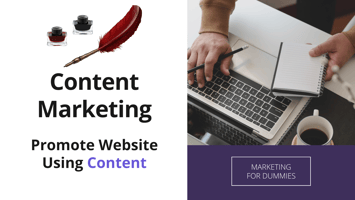Part 2
In the era of AI, are copywriters and creative specialists in danger of losing jobs?

Part 1
These days, everyone is talking about artificial intelligence. Many white-collar professionals are concerned and asking themselves whether they will still be in demand in their professions in a few years. Copywriters, designers, marketers, social media managers, programmers, lawyers, and even teachers and doctors, with their online learning and telemedicine tools, are genuinely worried. How many of them will remain in the field, and how many will be displaced by AI technology? It's a rhetorical question.
I recently came across a social media post that touched on a medical case in a certain country. 17 doctors couldn't diagnose a child correctly for 3 years, until the desperate mother entered a description of the symptoms into ChatGPT. As a result, AI suggested a diagnosis which was later confirmed by a neurosurgeon.
Looks impressive.
Is AI a Competitor or Your Helpful Assistant?
Your concern is justified, but only partially. Weak professionals will be compelled to either leave the profession or retrain. However, motivated professionals will not only remain but will also work closely with new technology. After all, if you look at the issue from a different perspective, AI is not an enemy trying to steal your job; it's your partner and a helpful personal assistant. In fact, it's another powerful step towards automation and digitization of processes.
The role of AI in Marketing
Let's talk about AI in marketing in more detail. Most likely, the very nature of the profession will change. You should forget about artificially inflated staff and budgets. However, this doesn't mean that AI can replace real professionals.
In the field of marketing, AI is indeed a valuable assistant. It can help marketers in various ways, such as identifying trends, analyzing vast amounts of data, and automating routine tasks. However, it's important to remember that AI is a tool that complements human expertise rather than a replacement. AI can optimize ad targeting, but the creativity in crafting compelling ad copy remains in the hands of copywriters. AI can even assist in designing graphics, but the human touch in creating eye-catching visuals is irreplaceable. Nothing can replace human thinking, creativity, and the ability to see the bigger picture. The function of AI is to simplify, speed up, and suggest tips. Strategy, decisions, creativity and responsibility lie with humans. In fact, AI automation reduces the workload on personnel and speeds up processes and decision-making.
It's like a video game. The game equips players with all necessary tools, but it's up to the players to make decisions and steer the game. If you make a mistake, you lose. The same principle applies to AI. If it falls into the hands of the wrong person or unqualified specialist, the business loses. To achieve results, it is important to have a comprehensive understanding of the game strategy, just as it's crucial to understand effective marketing strategies, tactics, target audience behaviour, market conditions, and more. With that understanding and a full picture in your mind, you will make the right choices and influence the world according to your goals and tasks. And yes, AI serves as your helpful assistant.
How to Properly Use AI Tools for Marketing purposes
To succeed in the landscape of marketing, professionals must embrace AI as a partner rather than a threat.
AI is the source of valuable tips for marketers
Here are some practical tips to help you master AI technology. Let's use ChatGPT as an example. For more demanding tasks, you'll need more specialized AI apps:
ChatGPT is an OpenAI that generates responses based on the input it receives. The technology can assist you with a variety of tasks, from research and writing to brainstorming and basic coding. But you need to train ChatGPT to generate accurate tips for you.
Marketing Tasks Where AI Can Assist You
Here's how you can make the most of AI in your marketing endeavors: Data Analysis, Personalization, Content Creation, SEO Optimization, Audience Insights
- Generating new ideas as an alternative to brainstorming
- Market and competitor analysis, and target audience research
- Identifying new opportunities, tools, and channels
- Creating content plans, marketing plans, and campaigns
- Copywriting and creating social media posts; creating ad copy, scripts and engaging emails tailored to your target audience
- Rewriting content, shortening, expanding, changing tone of voice
- Text translation and editing
- SEO, keyword research, and writing SEO-friendly content
- Writing basic programming code, HTML, CSS
- Design and video creation
Tips to enter accurate AI queries
- When entering a query, provide a brief input: your goals, industry, target audience, market specifics, what you should pay special attention to, etc.
- Try to keep your query concise, just within a paragraph's length.
- As the AI generates responses, clarify and adjust your request until you get the optimal answer.
- Even after receiving the optimal response, try requesting several variations and choose the most suitable one.
- When formulating marketing queries, ask how your direct competitors or the most successful companies in the industry would act to achieve certain goals or tasks.
Working in Harmony with AI. Incorporating AI in Your Marketing Strategy
Remember that AI is here to make your job easier, not to take it away. Your role as a marketer remains vital in understanding the nuances of your industry and connecting with your audience on a personal level. AI is most effective when integrated into your marketing strategy.
In the second part of the article>>, we will break down step by step how AI will assist in tackling key marketing tasks.



